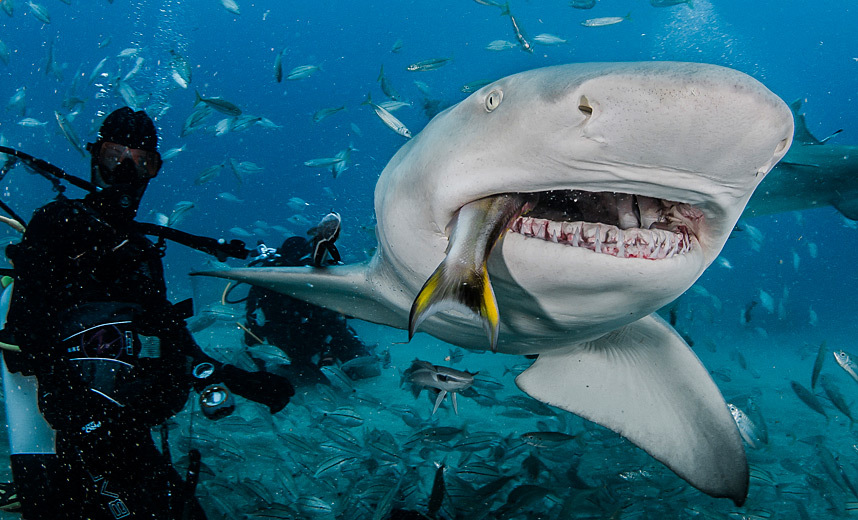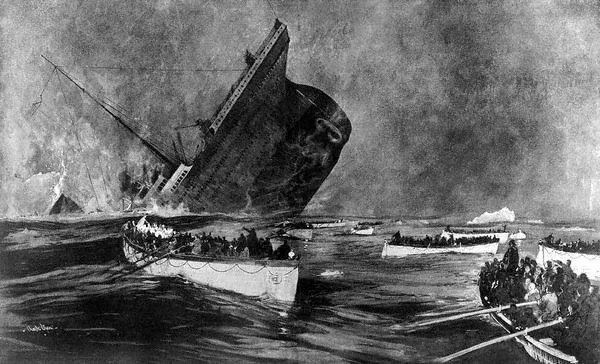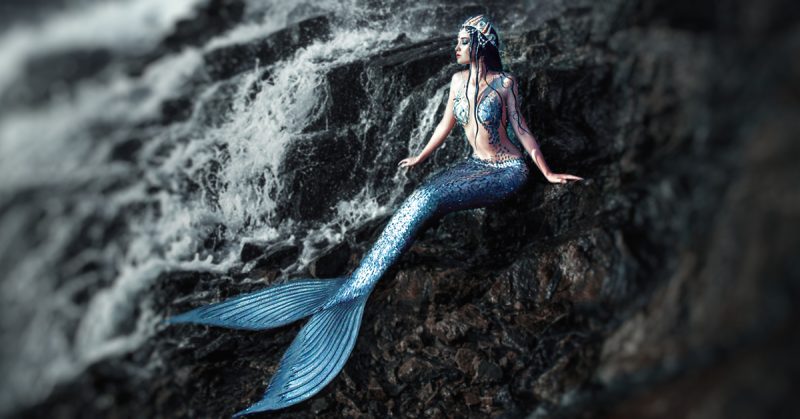An Interview with Dr. David Delaney
An Expert’s Opinion on the Controversial Practice of Shark Baiting:
Dr. David Delaney has dedicated his career to the study and conservation of sharks. I was interested to learn what he thinks about the practice of baited shark dives. Shark feeding on scuba dives can be done by hand, by tossing fish bits in the water from a boat, or by hiding feeder fish in some sort of receptacle which the sharks approach.
Question: Do you think baited shark dives are acceptable?:
Dr. Delaney: When asked whether recreational dives involving shark feeding are a good idea, I have no simple answer because my response depends upon how the shark dives are conducted. Baited shark dives can be an exciting and educational experience under the right circumstances.
Q: Do you think hand-feeding sharks around scuba divers is acceptable?:
Dr. Delaney: I am against hand feeding sharks during recreational dives. While hand feeding can be done relatively safely by a trained person, it is always a risky activity.
The best way to bait sharks is to use sardine oil or a sphere with holes that contain crushed fish but do not release fish into the water; just the scent of fish can attract sharks from kilometers.
Q: Do you think that feeding sharks changes their behavior in a detrimental way?:
Dr. Delaney: There is not enough research to say whether shark baiting is detrimental to sharks. We do know that sharks are intelligent animals and can learn where to go by being conditioned with feeding. We see this in the example you mention and also in the lab.
For example, I was part of a research team in South Africa that carried out experiments on whether we could teach catsharks to go through an underwater maze. We gave them food when they followed the white corridors (rather than black ones). When they did they were given a nice piece of fish or squid as a reward. While results varied between individual sharks and shark species, they all learned where to go based on the promise of a reward. Similar work conducted in the past by other shark biologists has yielded similar results.
Q: Are baited shark dives near beach tourist destinations unsafe?:
Dr. Delaney: I think they should be separate. That way people can swim in waters that do have chum and feeding sharks. Divers who want to see sharks can do these activities away from the beach.
Q: Do you think that it is okay for divers to touch sharks?:
Dr. Delaney: I would recommend people do not touch sharks in the wild. If someone wants to touch a shark, there are places for this other than the ocean. I would recommend that those who want to touch a shark go to an aquarium with a shark (and ray) touch tank where people can touch these animals as they learn about their biology and the threats to their survival. Educators and veterinarians make sure that the animals are treated well and are healthy. These exhibits are becoming more common at aquariums around the globe.
Another way that humans can touch sharks is to go to an educational program where sharks that died of natural causes or as by catch from legal fishing are dissected. Usually in these programs, you are allowed to touch the skin of the shark and I highly recommend this. The skin feels like rough sand paper when stroked in one direction and is relatively smooth in the other. This is because shark skin (like that of rays, and chimeras) is made up of millions of mini teeth called dermal denticles, or placoid scales. These scientific names essentially describe the miniature teeth; therefore when rubbed one way with the teeth the skin feels smooth and if you rub against the “teeth”, the skin feels rough.
Q: Under What Circumstances Would You Recommend Baited Shark Dives to Divers?:
Dr. Delaney: In my opinion, baited shark dives serve a similar purpose to aquariums and zoos. Shark feeding dives allow humans the opportunity to view and interact with a species that they might never encounter. If conducted in a respectful manner, baited shark dives may actually benefit sharks as a species by increasing human interest in shark conservation, as well as facilitating and funding education, research, and conservation.
When considering whether sharks dives are okay or not, realize that other types of tourism that take advantage of human interest in a species have long been acceptable. Aquariums, for example, make use of productive, educational tourism to further conservation goals. As most visitors to the aquarium do not scuba dive, the opportunity for them to view living sharks and other aquatic life is a rare educational experience. The New England Aquarium (where I once worked), the Monterey Bay Aquarium in California, and Two Oceans in Cape Town, South Africa (to name a few) all raise awareness of the issues threatening the survival of sharks and other marine species, conduct research, and undertake various conservation efforts.
In a similar way, baited shark dives can give an educational (as well as thrilling) experience, and can be used to conduct or fund research. Baited shark dives help researchers gather data on shark presence and abundance, and help scientists gain a better understanding of current shark ecology and threats. This information can be used to increase sharks’ chances of survival. The goals of providing an exciting experience for recreational divers and furthering researcher’s understanding of shark species need not be at odds.
As an example of a shark dive serving multiple purposes, I participated in a baited shark dive in Umkomass, South Africa and saw dozens of black tip sharks. Many had hooks in their mouths, gills, and sides. The amount of tackle gear caused us to realize that the effect fisherman have on coastal shark species was greater than we previously thought, and caused us to focus efforts on minimizing the effect fishermen have on coastal shark species.
A shark dive that merely involves tossing fish in the water around divers is a wasted opportunity as it provides no educational opportunities. These sorts of shark dives are not worth supporting. I recommend diving with companies that start and finish with a lecture on the biology, ecology, and conservation of these species as well as how to do it safely for the customers and sharks. I support and enjoy participating in baited shark dives that are conducted properly with the goals of education and conservation.
learn more at :: About.com
Picture courtesy of Best Golf and Diving







Leave A Comment